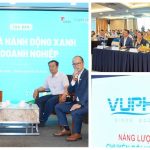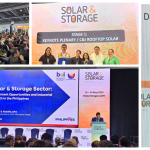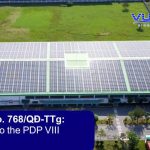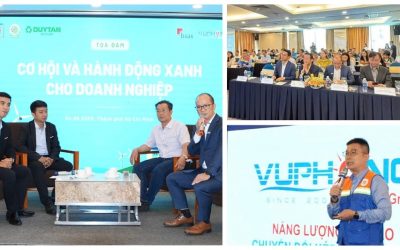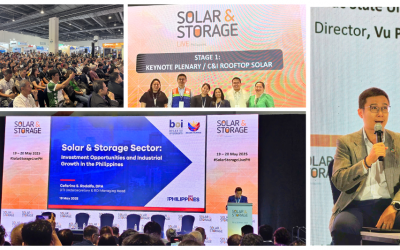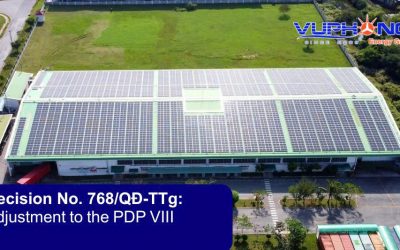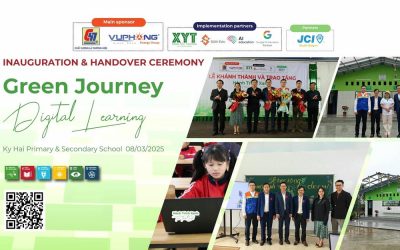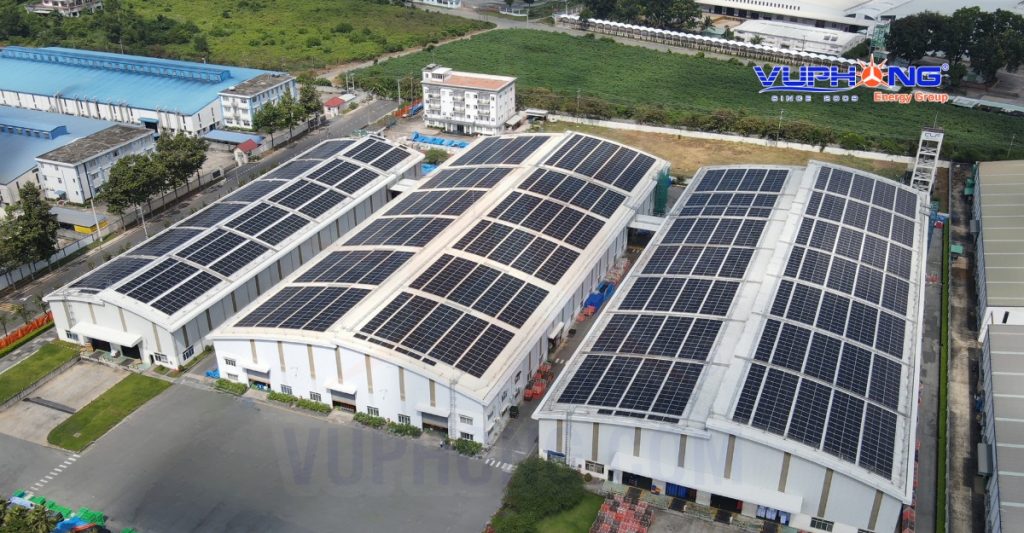
Rooftop solar power is one of Vietnam’s fastest-growing renewable energy sources, especially as the world strives toward sustainable development goals. While this transition offers numerous opportunities, Vietnamese businesses face challenges quickly aligning with the green shift trend.
The Importance of Solar Power
Developing solar power brings significant benefits not only to the environment but also to the economy. According to the 2020 Nationally determined contribution technical report, greenhouse gas emissions from the energy sector could reach 650 million tons of CO2 equivalent by 2030 under a business-as-usual scenario, accounting for over 80% of the national emissions.
Shifting to renewable energy sources, including solar power, will significantly reduce CO2 emissions, contributing to Vietnam’s commitment to achieving Net-Zero by 2050.
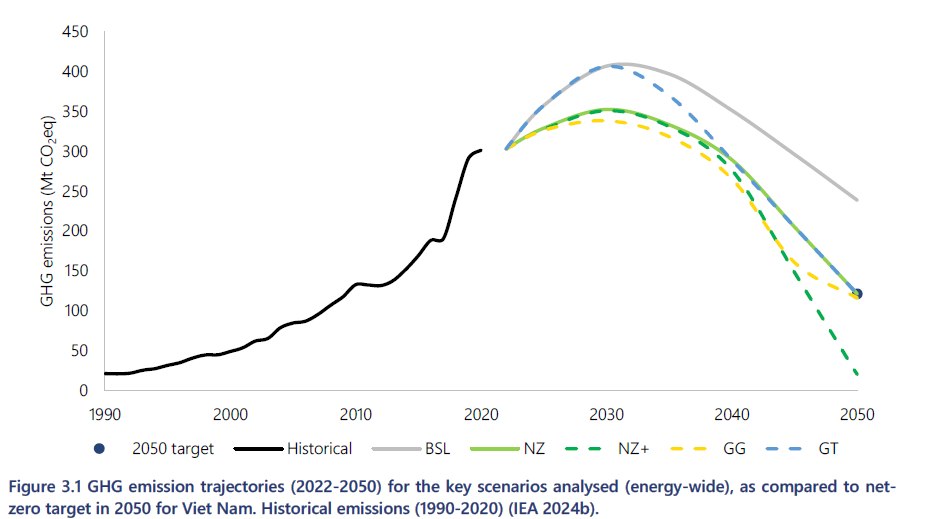 GHG emission reductions based on different scenario pathways (Source: Vietnam Energy Outlook Report Pathways to Net-Zero)
GHG emission reductions based on different scenario pathways (Source: Vietnam Energy Outlook Report Pathways to Net-Zero)
Installing rooftop solar power systems helps businesses save an average of 20-30% on monthly electricity costs and enables them to produce and trade energy certificates like I-REC, increasing economic benefits.
Policy context
As of now, the National Power Development Plan for the period 2021 – 2030, with a vision to 2050, has been approved. This plan strongly encourages renewable energy development, aiming for a Net-Zero target by 2050, as committed at COP26.
The newly approved Decree No. 80/2024/ND-CP outlines specific direct power purchase agreement mechanisms, creating a positive foundation to drive businesses’ green transition through private transmission lines and the national grid. This decree promotes fair and transparent competition in the energy sector, facilitating direct power transactions between companies and power producers, and allowing for price negotiations based on actual supply and demand.
Opportunities for businesses
Installing rooftop solar systems offers significant economic benefits for businesses. Companies can save up to 20-30% on monthly electricity costs (using the PPA cooperation model). This is a long-term solution to reduce fixed operational costs. Additionally, solar power provides a stable and sustainable electricity source, reducing dependence on the grid and mitigating the risk of future electricity price hikes.
Furthermore, expanding production and adopting advanced technologies in solar power systems can improve efficiency, attracting international investors focused on sustainability. Businesses can also trade energy certificates like I-REC, enhancing brand image and affirming their commitment to sustainable development.
Boost from international policies
Businesses face international demands for emission reductions and the use of renewable energy. The EU has introduced the Carbon Border Adjustment Mechanism (CBAM), requiring companies exporting to the EU to declare their carbon footprint and pay a “carbon tax.” This places significant pressure on businesses to adapt and green their production processes quickly.
A 1MWp solar power system can reduce emissions by 864.35 tons of CO2 (according to the Vietnam’s power grid emission coefficient for 2022). This helps businesses meet stringent emission reduction requirements for Scope 2 emissions. Notably, global corporations committed to 100% renewable energy also demand that their supply chain partners meet these standards.
 3 emission ranges and accompanying descriptions
3 emission ranges and accompanying descriptions
Future potential
Despite some challenges, the potential for solar power development in Vietnam remains substantial. According to the rooftop solar development plan in Ho Chi Minh City for 2026-2030, the potential for rooftop solar energy, specifically for the manufacturing sector, is projected to reach 1,589 MWp by 2030.
To ensure the commitment to Net-Zero by 2050, it is essential to research and develop the application of new technologies to enhance project efficiency. One notable approach is combining rooftop solar systems with storage devices. This system not only helps businesses reduce electricity costs but also alleviates the burden on the national grid, especially during peak hours. Additionally, it allows businesses to avoid competition for development quotas in various regions.
Solar power projects are not just economic solutions; they also play a crucial role in minimizing negative environmental impacts and affirming a company’s commitment to sustainable development.
|
Vu Phong Energy Group is partnering with many businesses on their journey to green production, emission reduction, and sustainable development through:
Businesses interested in clean energy solutions can contact our hotline at 1800 7171 or +84 9 1800 7171 or via email at hello@vuphong.com for prompt support! |
Vu Phong Energy Group
